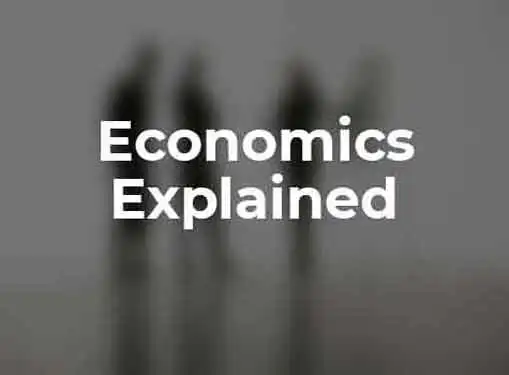Business Economics for Entrepreneurs
Economic Basics for Entrepreneurs
Written by Bobby Jan for Gaebler Ventures
Basic economic concepts are tools every entrepreneur should be familiar with. What is economics and why is it important for entrepreneurs? Read this article to find out.
As an ordinary person, you must make decisions everyday on how to spend your time, money, and other resources.

As an entrepreneur, you must make tough business decisions like how to most efficiently and effectively cut costs.
According to the great economist Alfred Marshall, "Economics is the study of people in the ordinary business of life." Don't blame Mr. Marshall for giving such a vague definition; economics touches every corner of our lives and economists play important roles in almost every field, from managing our fiscal policy to local crime rate.
To be a little more precise, economics is a social science that studies how individuals and societies allocate limited resources to satisfy unlimited wants and how to make this allocation more efficient.
As an entrepreneur, there are many reasons for you to allocate some of your precious time to learn the basics of economics. One obvious reason to study economics is that you are sick and tired of not being able to understand the newspapers like The Wall Street Journal or how to interpret the latest economic data.
The study of economics will equip you with the tools to interpret news and economic data that might materially affect your business. Another reason to study economics is that these tools will help you make all sorts of daily decisions. What's more, basic economics is both fun and easy to grasp!
Scarcity
The basic economic problem is scarcity. Scarcity arises out of two time tested assumptions: 1) we human beings have unlimited desires and 2) there aren't enough resources to go around satisfying our unlimited desires. An individual could always use more time, more money, more talent, or whatever he or she may want more of.
A nation could always use more technology, better equipped labor force, more natural resources, etc. If there is no scarcity, then we would never have to make a choice. We would never need to choose A over B because, without scarcity, we would have the capacity to choose both A and B. The best we can do is to make the most out of what we have.
Micro and Macro
Generally speaking, there are two ways to approach economics: from a micro perspective (trees) or from a macro perspective (the forest). Microeconomics is a branch of economics that studies how individuals, households, and firms allocate scare resources. Microeconomics analyzes the individual economic unit instead of the whole economy.
On the other hand, macroeconomics is a branch of economics that looks at the bigger picture of how a region, nation, or even the world allocates scare resources. Macroeconomics is concerned with the economy as a whole instead of individual economic units.
Some Important Economic Concepts
You don't need to get a PhD in economics or even be able to manipulate economic models to put economics to good use. With economics, it is the basic concepts that are the most powerful and useful. Examples of basic but powerful economic concepts are:
- Opportunity cost
- Comparative advantage
- Utility
- Supply and demand
- Elasticity
- Incentives
Cheng Ming (Bobby) Jan is an Economics major at the University of Chicago who has a strong interest in entrepreneurship and investing.
Share this article
Additional Resources for Entrepreneurs

Conversation Board
Do you agree with us that entrepreneurs would do well to understand basic economic principles? Share your comments below.